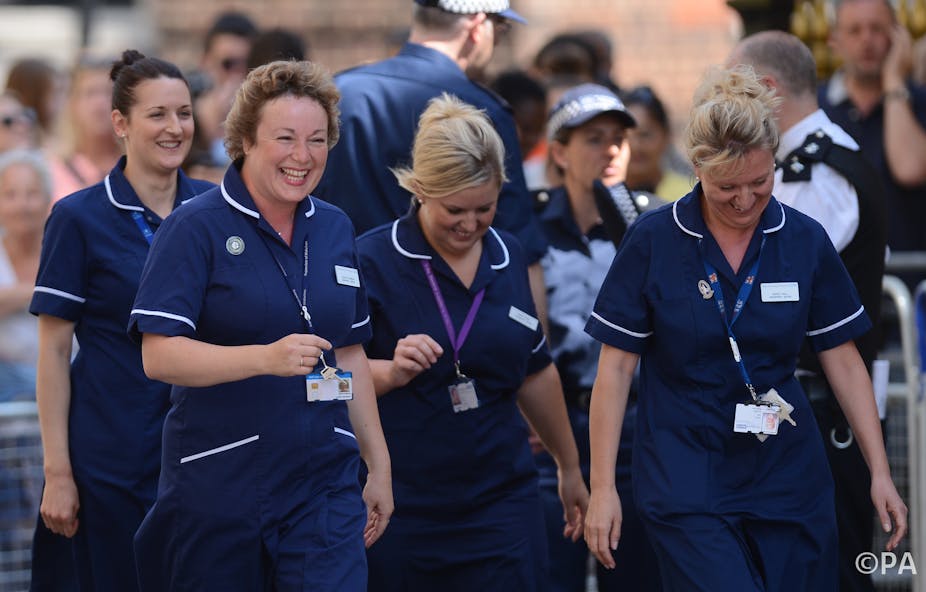As I get out and about in the health service I never cease to be amazed by the quality of care that is provided every day. When we get it wrong, the implications can be catastrophic – and we need to understand what’s happened, put it right if we can and try to make sure it can’t happen again. But amid all the coverage of these kinds of stories, we also need to acknowledge that we get it right so often and in such difficult circumstances.
When I talk to European and US colleagues, they have questions about some aspects of our system, but are often also very positive about the quality of our primary care, our focus on person-centred approaches, the cost-efficient way we deliver care and the quality of our mental health services. When I talk to people in the NHS, they’re always amazed by this – perhaps staff find it difficult to comprehend how they are viewed externally.
A tough time
In many ways, 2013 was a tough year for the NHS. Following the Francis Inquiry into events at Mid-Staffordshire, we have witnessed a number of other serious and high-profile care failings, and – quite understandably – public outcry. This has led to a renewed focus on quality and compassion, but the risk is that in the process we hit the target and miss the point.
The Francis Inquiry had 290 recommendations – even its executive summary was 125 pages. No system can truly do justice to this level of detail all at once. The danger, as always, is that we achieve the easy recommendations and miss the one or two that really matter.
While all this has been going on, pressures on the ground have been intense, particularly in Accident & Emergency, and this has prompted various debates about why; problems with the new NHS 111 system, lack of access to out-of-hours GPs, funding cuts in social care – or whether it was a more general sign that the system as a whole was overloaded.
Emotional labour
All the signs are that 2014 is going to be another difficult year. But if we learn anything from the care scandals of 2013, it is that healthcare is a form of emotional labour and that front-line staff need to feel adequately supported and cared for themselves if they are to deliver high-quality, compassionate, dignified care to others.
Providing healthcare is very difficult, very distressing and can sometimes be disgusting; we rarely, in polite conversation, anyway, talk about the details of what staff do every day. Rather than blaming individuals, penalising mistakes and beefing up inspection regimes, we need to pay more attention to the well-being of staff.
All of us have an “emotional bank account” that constantly gets depleted and we all have different ways of topping that bank account back up. Rather than just focusing on the finances or on narrow targets such as four-hour waits in A&E, we need to spend equal time (if not more) on healthcare as emotional labour – otherwise the mistakes of 2013 will be repeated.
Every major inquiry since the scandals of the long-stay hospitals in the 1960s and 1970s has tried to make sure that similar things can’t happen again, and yet the response is too often a top-down, heavy-handed, punitive approach.
Gearing up
The NHS has had its budget relatively protected compared to other public services, but it also faces a difficult mix of rapidly rising demand and higher public expectations. Estimates of the savings to be made vary from £20 billion to £30 billion, just to meet existing budget demands. All this has come on the back of a major structural reorganisation – one of the biggest in the history of the NHS – and the current infrastructure looks overly complicated, fragmented and profoundly unfit for purpose.
We are gearing up for an election in 2015 and the battle lines are already starting to be drawn. Unlike in 2010, the NHS could be an important electoral issue, and the politics could make the next 18 months extremely difficult to navigate. Into all this comes a new chief executive of NHS England, Simon Stevens. Probably never before has the NHS faced such a complex range of deep-seated challenges all at once.
And out there on the frontline are the men and women who keep it all afloat while this is all going on. We need to think about them and support them too.

